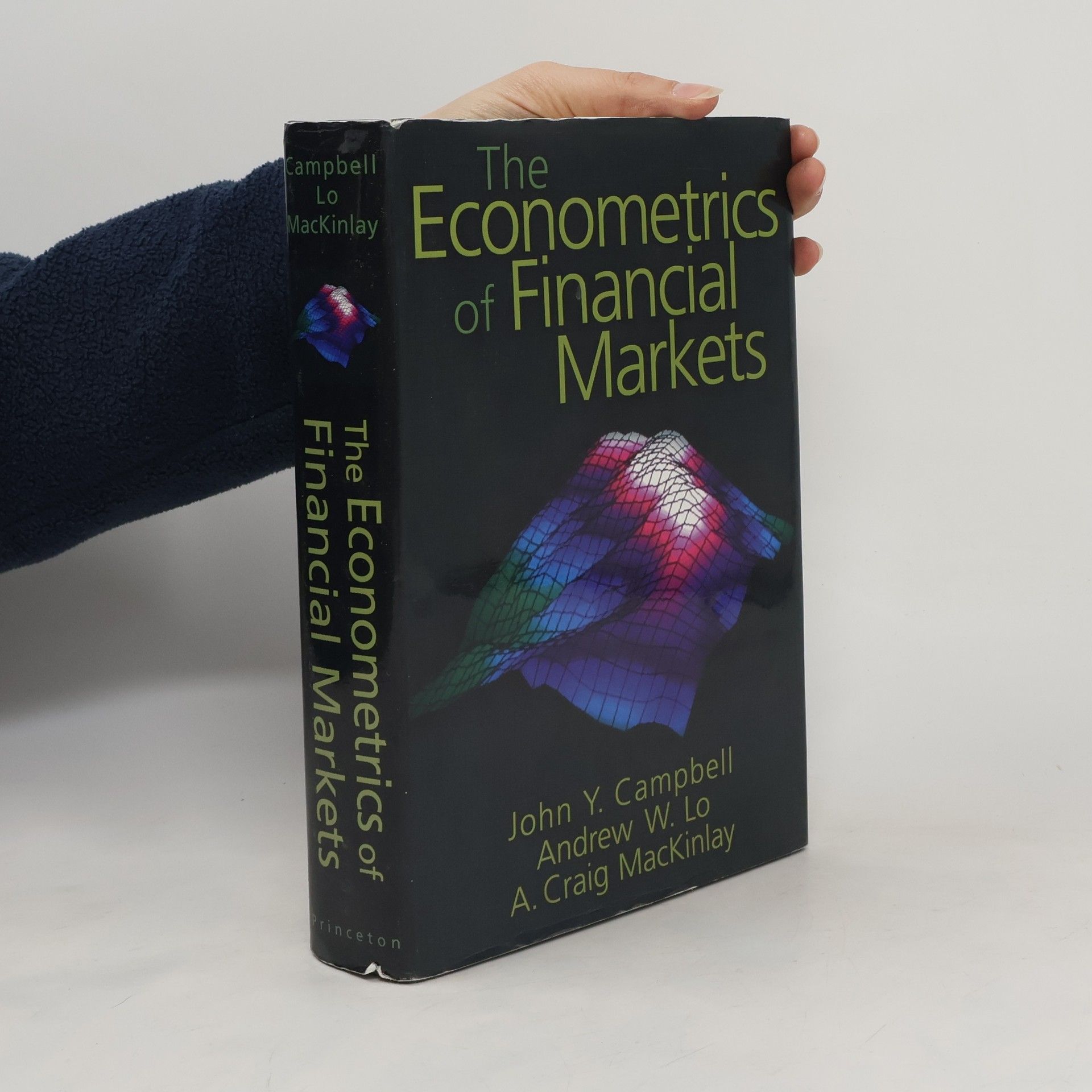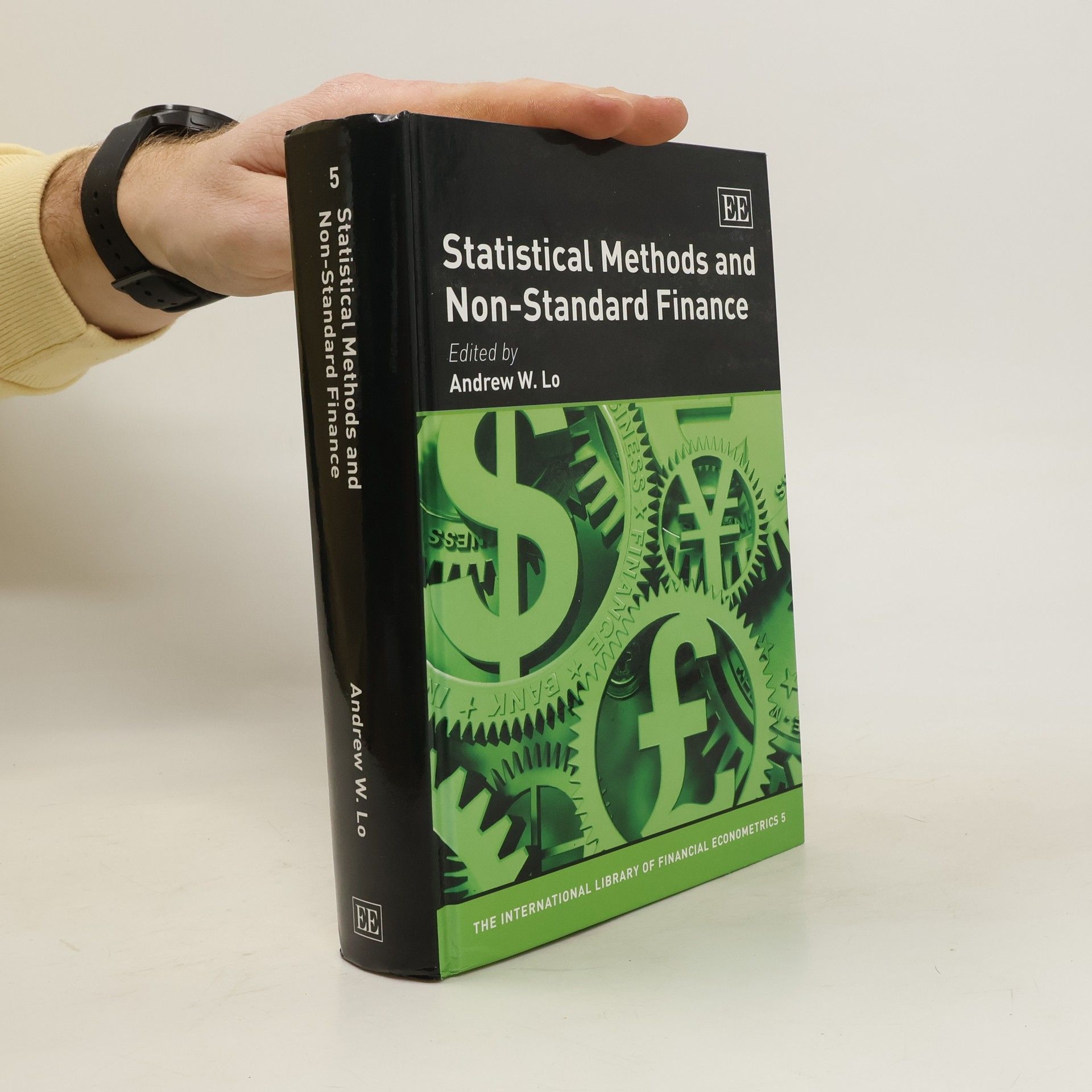Andrew W. Lo Bücher
Andrew Wen-Chuan Lo ist ein renommierter Finanzprofessor an der MIT Sloan School of Management. Seine Arbeit besteht hauptsächlich aus wissenschaftlichen Artikeln in den Bereichen Finanzen und Finanzökonomie. Durch seine Forschung trägt er zu einem tieferen Verständnis der Finanzmärkte und ihrer Dynamik bei. Seine Beiträge auf diesem Gebiet basieren auf umfangreichen Veröffentlichungen und fachlicher Expertise.




The past twenty years have seen an extraordinary growth in the use of quantitative methods in financial markets. Finance professionals now routinely use sophisticated statistical techniques in portfolio management, proprietary trading, risk management, financial consulting, and securities regulation. This graduate-level textbook is intended for PhD students, advanced MBA students, and industry professionals interested in the econometrics of financial modeling. The book covers the entire spectrum of empirical finance, the predictability of asset returns, tests of the Random Walk Hypothesis, the microstructure of securities markets, event analysis, the Capital Asset Pricing Model and the Arbitrage Pricing Theory, the term structure of interest rates, dynamic models of economic equilibrium, and nonlinear financial models such as ARCH, neural networks, statistical fractals, and chaos theory.Each chapter develops statistical techniques within the context of a particular financial application. This exciting new text contains a unique and accessible combination of theory and practice, bringing state-of-the-art statistical techniques to the forefront of financial applications. Each chapter also includes a discussion of recent empirical evidence, for example, the rejection of the Random Walk Hypothesis, as well as problems designed to help readers incorporate what they have read into their own applications.
"Is there an ideal portfolio of investment assets, one that perfectly balances risk and reward? In Pursuit of the Perfect Portfolio examines this question by profiling and interviewing ten of the most prominent figures in the finance world--Jack Bogle, Charley Ellis, Gene Fama, Marty Leibowitz, Harry Markowitz, Bob Merton, Myron Scholes, Bill Sharpe, Bob Shiller, and Jeremy Siegel. We learn about the personal and intellectual journeys of these luminaries--which include six Nobel Laureates and a trailblazer in mutual funds--and their most innovative contributions. In the process, we come to understand how the science of modern investing came to be. Each of these finance greats discusses their idea of a perfect portfolio, offering invaluable insights to today's investors"--Página [4] de la cubierta.
The Adaptive Markets Hypothesis is a formal and systematic exposition. Lo and Zhang develop the mathematical foundations of the simple yet powerful evolutionary model and show that the most fundamental economic behaviours that we take for granted emerge solely through natural selection.